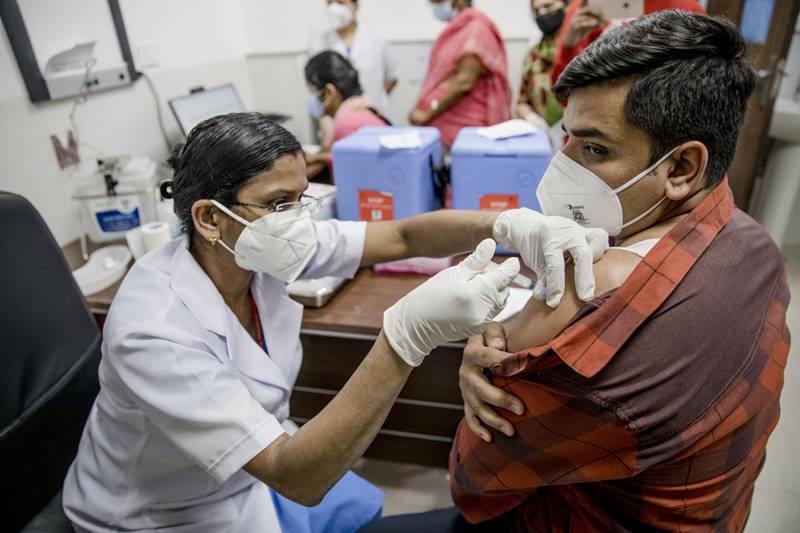The sixth serological survey conducted in the national capital in September has revealed that more than 90 per cent of respondents have developed antibodies against COVID19.
“Women had a higher sero positivity rate than men. Those below 18 had a sero positivity rate of 88 per cent, while those above 18 had a sero positivity rate of 97 to 98 per cent,” Delhi’s health minister Satyendar Jain was quoted.
90 pc seropositivity in unvaccinated people in Delhi and over 97 pc in vaccinated ones: Health minister Jain on latest sero survey
— Press Trust of India (@PTI_News) October 28, 2021
Those inoculated with COVID19 vaccines had a seropositivity rate of 97 per cent while unvaccinated people had a seropositivity rate of 90 per cent. The highest — 99.8 per cent — rate was reported in East Delhi whereas the lowest rate — 93.3 per cent — was reported in South west Delhi.
As per the first sero survey conducted in Delhi last year in June, COVID19 antibodies were found to be present in 22.6 per cent of the samples. The number increased to 29.1 per cent in the second sero survey in August and then dropped to 25.1 per cent in September in the third sero survey. Thereafter in the fourth sero survey conducted in October last year, it was observed that COVID19 antibodies have increased to 25.5 per cent.
In the fifth sero-survey conducted in January this year, anti-bodies were found in 56.13 per cent of samples. The latest survey shows, more than 90 per cent of the population surveyed has reported developing antibodies against COVID19.
So far, more than 20 million doses of COVID19 vaccines doses have been administered in the national capital.
Meanwhile, in a national review meeting held in New Delhi yesterday on October 27, Union Health Minister Mansukh Mandaviya pointed out that about 103.4 million people in the country have not taken the second dose of the COVID19 vaccine in the prescribed interval.
The gap between the first and second dose is 12 weeks for Covishield, four weeks for Covaxin, and three weeks for Sputnik V.
The minister also launched a month-long door-to-door vaccination campaign — ‘Har Ghar Dastak’ in order to ensure that people get fully vaccinated against coronavirus.
The campaign will focus on vaccinating people eligible for second dose and also those who have not taken the first dose, especially focusing on the districts that are performing poorly in the vaccination programme.



















